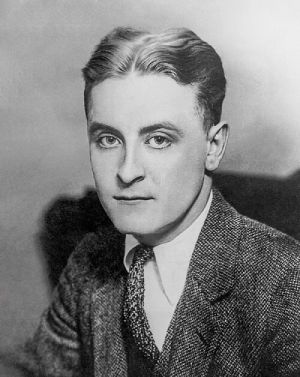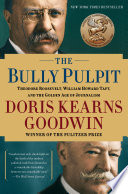Check out our list of the best authors like Upton Sinclair and discover satirical and historical works that changed the face of society!
Born in 1878, Upton Sinclair was a literary powerhouse with nearly 100 books to his name. Popular throughout the first half of the 20th century, his works earned him the Pulitzer Prize for Fiction in 1943. The Jungle, his groundbreaking muckraking novel exposing America’s meatpacking industry, directly led to the passage of the Pure Food and Drug Act of 1906.
Sinclair also published The Brass Check, which exposed the yellow journalism of his era and helped establish the first code of ethics for journalists. These works exemplify how Sinclair used literature as a weapon for social change, transforming the political and legal structure of the United States through the power of storytelling.
Growing up in an unstable household that moved frequently, Sinclair found refuge in books. This voracious reader started formal schooling at age 10 but caught up quickly, entering City College of New York at just 13. After graduating and attending Columbia Law School, he discovered his true calling wasn’t law but writing—starting with poetry before finding his voice in social reform fiction.
To write The Jungle, Sinclair spent weeks working undercover in disguise, gaining firsthand experience of the horrific conditions he would expose. This commitment to investigative authenticity became his trademark, continuing right up to his final book, The Coal War, published posthumously.
For more recommendations, you might also enjoy exploring best historical fiction books, and best war books.
Table of contents
Open Table of contents
- Must-Read Authors Like Upton Sinclair
- 1. Edith Wharton, 1862 - 1937
- 2. Joseph Heller, 1923 - 1999
- 3. Richard Russo, 1949 - present
- 4. Virginia Woolf, 1882 - 1941
- 5. Henry James, 1843 - 1916
- 6. F. Scott Fitzgerald, 1896 - 1940
- 7. Norman Mailer, 1923 - 2007
- 8. Thomas Wolfe, 1900 - 1938
- 9. Charles Dickens, 1812 - 1879
- 10. Sinclair Lewis, 1885 - 1951
- The Legacy of Literary Activism
Must-Read Authors Like Upton Sinclair
You might also enjoy best Irish authors, best British authors, best American authors.
1. Edith Wharton, 1862 - 1937

Edith Wharton via Wikipedia Public Domain
Edith Wharton possessed an insider’s view of New York City’s upper-class world, which she dissected with surgical precision in her novels about the Gilded Age. Born into privilege, she initially set aside her childhood storytelling talents to fulfill social expectations as a debutante in the late 1880s.
After marriage and travels abroad, Wharton returned to writing with newfound perspective. Her first novel, The Valley of Decision, wasn’t published until she was 40, but she had already established herself through novellas, nonfiction, short stories, and poetry. In 1920, The Age of Innocence won the Pulitzer Prize, making Wharton the first female recipient in history.
Like Sinclair, Wharton used her fiction to expose the hypocrisies and constraints of her society, particularly the suffocating social conventions that trapped both men and women in gilded cages.
“The real loneliness is living among all these kind people who only ask one to pretend!”
Edith Wharton, The Age of Innocence
2. Joseph Heller, 1923 - 1999
Brooklyn-born Joseph Heller transformed his World War II experiences into some of the most powerful anti-war literature ever written. After serving 60 combat missions as a member of the U.S. Army Air Corps, Heller graduated from New York University with an English degree and pursued graduate work at Columbia.
While working as a copywriter alongside Mary Higgins Clark, Heller crafted his masterpiece Catch-22 during his off hours. Though he wrote only seven novels, his satirical examination of military bureaucracy and middle-class absurdity resonated powerfully. The success of Catch-22’s film rights made him a millionaire, allowing him to dedicate his life to writing.
Heller shared Sinclair’s talent for using dark humor and satire to expose institutional failures and societal contradictions.
“The enemy is anybody who’s going to get you killed, no matter which side he is on.”
Joseph Heller, Catch-22
3. Richard Russo, 1949 - present

Richard Russo via Facebook
Richard Russo brings academic rigor to his social commentary, holding a Ph.D. from the University of Arizona where he studied Charles Brockden Brown’s works. His dissertation research sparked a passion for writing that led to his first novel, Mohawk, published in 1986 while teaching at Southern Illinois University Carbondale.
Russo’s 2001 masterpiece Empire Falls earned him the Pulitzer Prize, cementing his reputation as a chronicler of working-class American struggles. Beyond novels, he writes film scripts, including Nobody’s Fool (1994), based on his own 1993 novel. His 2023 work Somebody’s Fool continues exploring themes of economic decline and community resilience.
Like Sinclair, Russo focuses on how larger economic and social forces impact ordinary people’s lives, particularly in small industrial towns facing decline.
“And there comes a time in your life when you realize that if you don’t take the opportunity to be happy, you may never get another chance again.”
Richard Russo, Empire Falls
4. Virginia Woolf, 1882 - 1941

Virginia Woolf via Wikipedia Public Domain
Virginia Woolf revolutionized modernist literature while addressing profound social issues, particularly women’s rights and mental health. Born in London and educated in English classics, she attended King’s College with her father’s encouragement to pursue professional writing.
With her husband, Woolf founded Hogarth Press, which published most of her groundbreaking works. While The Voyage Out (1915) was her first novel, she’s best remembered for To the Lighthouse and Mrs. Dalloway. Woolf pioneered stream-of-consciousness writing, creating a new literary language to explore internal psychological landscapes.
Though her methods differed from Sinclair’s direct approach, Woolf shared his commitment to using literature for social progress, particularly in advancing women’s intellectual and creative equality.
“He thought her beautiful, believed her impeccably wise; dreamed of her, wrote poems to her, which, ignoring the subject, she corrected in red ink.”
Virginia Woolf, Mrs. Dalloway
5. Henry James, 1843 - 1916
New York-born Henry James began at Harvard Law School but quickly discovered his passion lay in literature rather than legal practice. After traveling through Europe and meeting literary giants like Charles Dickens and George Eliot, he fell in love with European culture and eventually became a British citizen.
James’s unique perspective as an American living in Europe allowed him to create nuanced comparisons between Old and New World values. His 1881 novel The Portrait of a Lady remains one of his most celebrated works, while The Turn of the Screw (1898) showcased his versatility across genres.
Like Sinclair, James used his fiction to examine social conventions and power structures, though he focused more on psychological manipulation and class dynamics than economic exploitation.
“There are few hours in life more agreeable than the hour dedicated to the ceremony known as afternoon tea.”
Henry James, Portrait of a Lady
6. F. Scott Fitzgerald, 1896 - 1940

F. Scott Fitzgerald via Wikipedia Public Domain
F. Scott Fitzgerald captured the Jazz Age’s glittering surface while exposing its moral emptiness underneath. Born in Minnesota and educated at Princeton, his early romantic disappointments with a wealthy woman drove him to military service and eventually to writing.
The Great Gatsby, often called the “Great American Novel,” emerged from his intimate knowledge of wealth’s corrupting influence. His first success, This Side of Paradise (1920), established him as the voice of his generation. Though he completed only five novels before his death (with The Last Tycoon left unfinished), his impact on American literature was profound.
Fitzgerald shared Sinclair’s ability to use personal experience and social observation to critique American society, particularly the hollow pursuit of wealth and status.
“Do you ever wait for the longest day of the year and then miss it? I always wait for the longest day of the year and then miss it!”
F. Scott Fitzgerald, The Great Gatsby
7. Norman Mailer, 1923 - 2007
Norman Mailer was a literary polymath—novelist, journalist, playwright, filmmaker, and actor—who never shied away from controversy. With 11 bestselling books, his most notable works include The Naked and the Dead (1948) and The Armies of the Night (1968), which won the Pulitzer Prize and helped create New Journalism.
Mailer’s political activism rivaled Sinclair’s commitment to social change. He was arrested in 1967 for anti-Vietnam War demonstrations and signed a 1968 pledge refusing to pay taxes in protest of the war. His willingness to put his freedom and finances on the line for his beliefs echoed Sinclair’s own activist spirit.
Like Sinclair, Mailer understood that writers have a responsibility to engage with the political realities of their time, using literature as a tool for social and political commentary.
“Mediocrities flock to any movement which will indulge their self-pity and their self-righteousness, for without a Movement the mediocrity is on the slide into terminal melancholia.”
Norman Mailer, The Armies of the Night
8. Thomas Wolfe, 1900 - 1938
Thomas Wolfe packed enormous ambition into his tragically short 37 years, producing four novels and multiple novellas that explored American identity with epic scope. His 1929 debut Look Homeward, Angel and 1935’s Of Time and the River established his reputation for lyrical, expansive prose.
Though publishers initially struggled with his lengthy manuscripts, Wolfe found devoted readers who appreciated his comprehensive approach to capturing American experience. His posthumously published works, including You Can’t Go Home Again, continued exploring themes of displacement and belonging.
Wolfe shared Sinclair’s commitment to exposing American social realities, though he focused more on cultural and regional identity than specific reform causes.
“All things on earth point home in old October; sailors to sea, travellers to walls and fences, hunters to field and hollow and the long voice of the hounds, the lover to the love he has forsaken.”
Thomas Wolfe, Of Time and the River
9. Charles Dickens, 1812 - 1879
Few names in English literature carry as much weight as Charles Dickens. During the Victorian era, he used his platform to spotlight the struggles of England’s common people. His literary career began with The Pickwick Papers, a serial publication that made him an international celebrity through its humor and cliffhanger endings.
Dickens mastered the art of social reform through entertainment. His 1843 novella A Christmas Carol continues inspiring adaptations today, while works like Great Expectations, David Copperfield, and Oliver Twist exposed the harsh realities of industrial-era poverty and exploitation.
Dickens pioneered the approach that Sinclair would later perfect: using compelling storytelling to force readers to confront uncomfortable social truths and demand change.
“Poetry makes life what lights and music do the stage.”
Charles Dickens, The Pickwick Papers
10. Sinclair Lewis, 1885 - 1951
Sinclair Lewis became the first American to win the Nobel Prize in Literature, honored for his varied characters and satirical humor. A Yale graduate, Lewis wrote throughout the 1920s-1940s, from the popular Main Street (1920) to The God-Seeker (1949), with World So Wide published posthumously.
Lewis began writing romantic poetry and sketches at Yale, then supported himself with odd jobs while crafting fiction. He even sold plots to Jack London before publishing Our Mr. Wrenn (1914) under his own name. By 1916, he was writing full-time, and Main Street earned him $2 million in sales—extraordinary for its era.
Lewis shared Upton Sinclair’s satirical approach to exposing American social problems, though he focused more on small-town conformity and middle-class complacency than industrial exploitation.
“Most troubles are unnecessary. We have Nature beaten; we can make her grow wheat; we can keep warm when she sends blizzards. So we raise the devil just for pleasure—wars, politics, race-hatreds, labor-disputes.”
Sinclair Lewis, Main Street
The Legacy of Literary Activism
These authors share Upton Sinclair’s fundamental belief that literature should serve a purpose beyond entertainment. They understood that fiction could be a powerful tool for social change, capable of reaching hearts and minds in ways that pure journalism or political rhetoric could not.
Common Threads:
Investigative Approach: Like Sinclair’s undercover work for The Jungle, many of these authors immersed themselves in the worlds they wrote about, bringing authenticity to their social commentary.
Institutional Critique: Whether exposing military bureaucracy (Heller), media corruption (Mailer), or industrial exploitation (Dickens), these writers weren’t afraid to challenge powerful institutions.
Human Impact Focus: All understood that the most effective social commentary comes through individual human stories that readers can connect with emotionally.
Lasting Influence: Their works didn’t just entertain—they changed laws, shifted public opinion, and continue influencing social discourse today.
In 2025, as we face new social challenges around technology, inequality, and global interconnectedness, these authors’ commitment to using literature as a force for positive change remains as relevant as ever. Their legacy reminds us that the best fiction doesn’t just reflect society—it helps shape it for the better.





